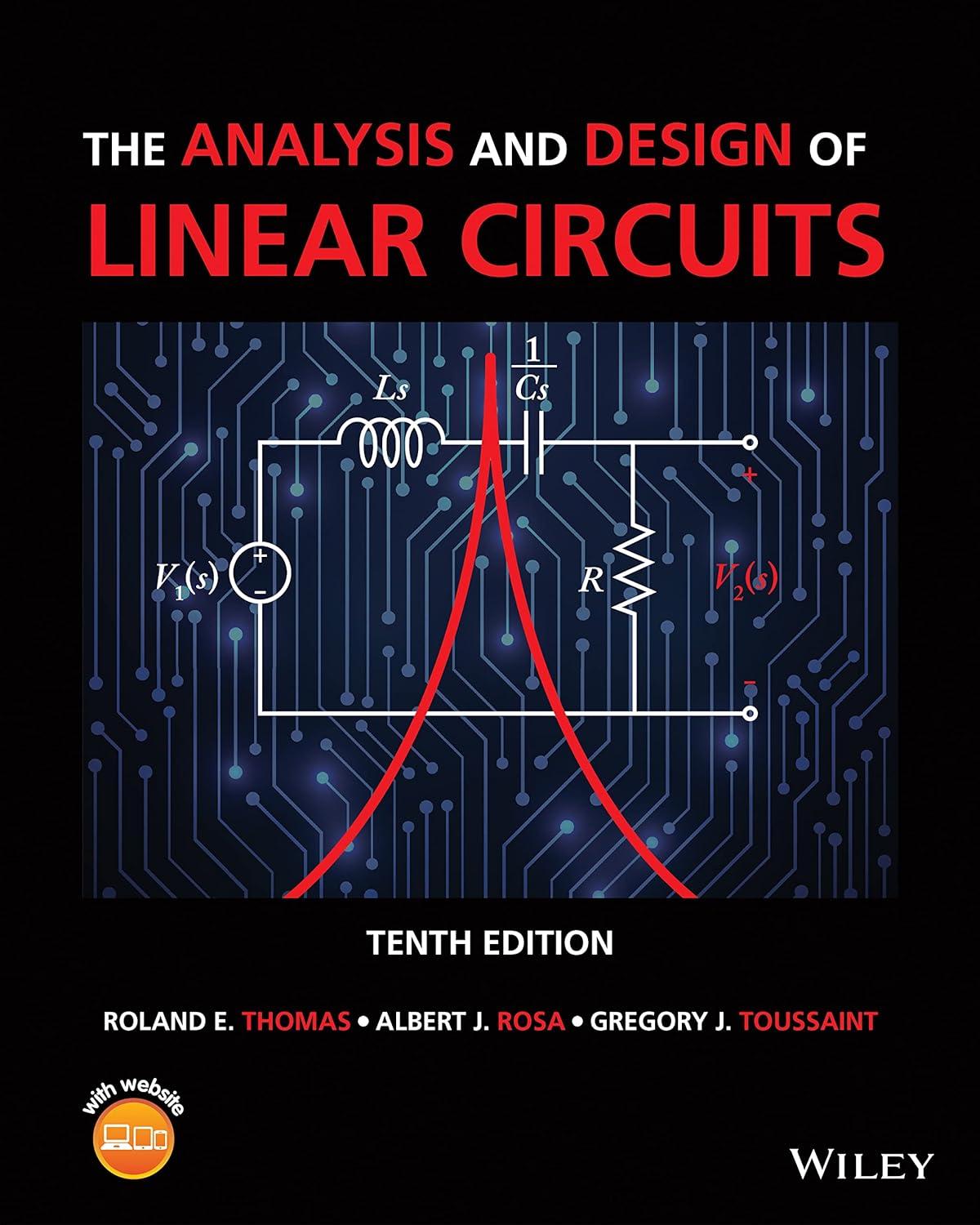A capacitor is a two-terminal device that can store electric charge. In a linear capacitor, the amount
Question:
A capacitor is a two-terminal device that can store electric charge. In a linear capacitor, the amount of charge stored is proportional to the voltage across the device. For a particular device the proportionality is \(q(t)=10^{-7} v(t)\). If \(v(t)=0\) for \(t\) \(<0\) and \(v(t)=10(1-\mathrm{e}-5000 t)\) for \(t \geq 0\), find the energy stored in the device at \(t=100 \mu \mathrm{s}\).
Fantastic news! We've Found the answer you've been seeking!
Step by Step Answer:
Related Book For 

The Analysis And Design Of Linear Circuits
ISBN: 9781119913023
10th Edition
Authors: Roland E. Thomas, Albert J. Rosa, Gregory J. Toussaint
Question Posted:





